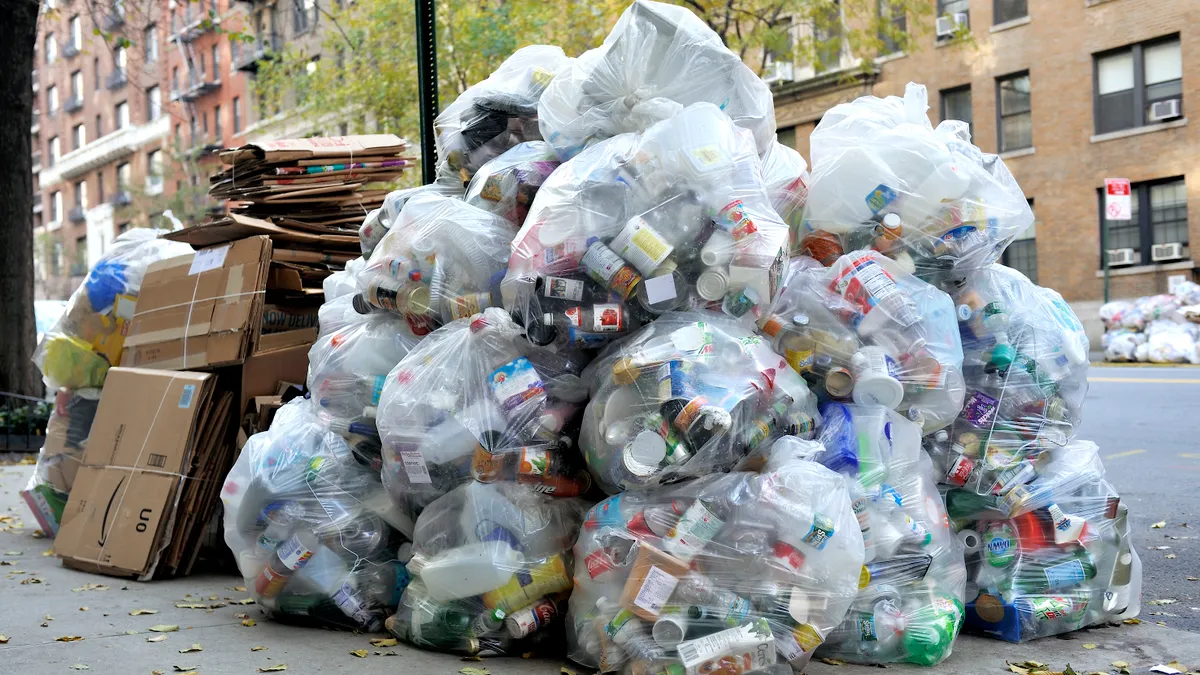UPDATE: In a special meeting on July 18, the Flint City Council voted against hiring Rizzo Environmental Services. Some council members cited lingering questions about the company's background and the consulting role of a former mayor. The idea of entering into a five-year contract with any company also gave some members pause. Flint's current mayor, Karen Weaver, supports hiring Rizzo.
A resolution was passed to extend the current contract with Republic Services for three years. Weaver could still veto this decision and the city's Receivership Transition Board will have the final say at its next meeting on August 10.
Dive Brief:
- Flint, MI's waste and recyclables collection contract with Republic Services was set to end this week and the City Council has yet to select a replacement.
- The City Council voted against a $17.4 million contract with Rizzo Environmental Services — despite a recommendation from the mayor — citing the need for more time to discuss details of the five-year deal.
- Though the Republic contract was originally set to expire tonight at midnight, the mayor has now approved a request from the council to extend it by 30 days.
Dive Insight:
Some council members said they didn't receive details on Rizzo's bid until hours before their Monday meeting and didn't have enough time to review it properly. Others said it was more important to ensure collection wasn't interrupted. Rizzo's director of governmental affairs said the council is obligated to hire them based on a provision in the city charter stating contracts should go to the lowest responsible bidder.
Rizzo's $17.4 million bid was the lowest, coming in under a $19.5 million bid from Republic and an $18.5 million bid from Emterra. The Council ultimately voted 5-3 against a contract with Rizzo. Any financial decision must be approved by the state-appointed Receivership Transition Advisory Board before the city can proceed.
This debate comes amid a very tumultuous period for Flint as the city continues to deal with the effects of its contaminated water crisis. One unintended consequence has been the large volume of waste from hundreds of thousands of used water bottles. This has led to an increase in recycling and the need for special drop-off sites.















